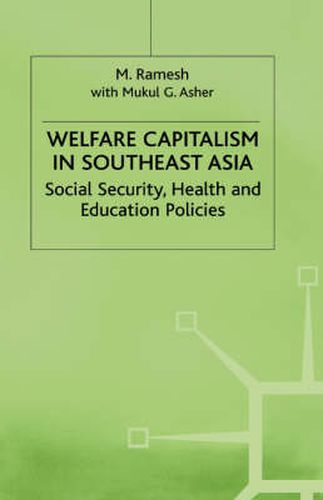Readings Newsletter
Become a Readings Member to make your shopping experience even easier.
Sign in or sign up for free!
You’re not far away from qualifying for FREE standard shipping within Australia
You’ve qualified for FREE standard shipping within Australia
The cart is loading…






This title is printed to order. This book may have been self-published. If so, we cannot guarantee the quality of the content. In the main most books will have gone through the editing process however some may not. We therefore suggest that you be aware of this before ordering this book. If in doubt check either the author or publisher’s details as we are unable to accept any returns unless they are faulty. Please contact us if you have any questions.
This study of social policies in Southeast Asia compares social security, health, and education policies in Indonesia, Malaysia, the Philippines, Singapore and Thailand. After describing the policies and assessing their adequacy and equity implications, it examines the forces that have shaped them. It concludes that social programmes (except for primary education) in the region are both inadequate and inequitable. It argues that the reason for this is political rather than cultural or socio-economic.
$9.00 standard shipping within Australia
FREE standard shipping within Australia for orders over $100.00
Express & International shipping calculated at checkout
This title is printed to order. This book may have been self-published. If so, we cannot guarantee the quality of the content. In the main most books will have gone through the editing process however some may not. We therefore suggest that you be aware of this before ordering this book. If in doubt check either the author or publisher’s details as we are unable to accept any returns unless they are faulty. Please contact us if you have any questions.
This study of social policies in Southeast Asia compares social security, health, and education policies in Indonesia, Malaysia, the Philippines, Singapore and Thailand. After describing the policies and assessing their adequacy and equity implications, it examines the forces that have shaped them. It concludes that social programmes (except for primary education) in the region are both inadequate and inequitable. It argues that the reason for this is political rather than cultural or socio-economic.